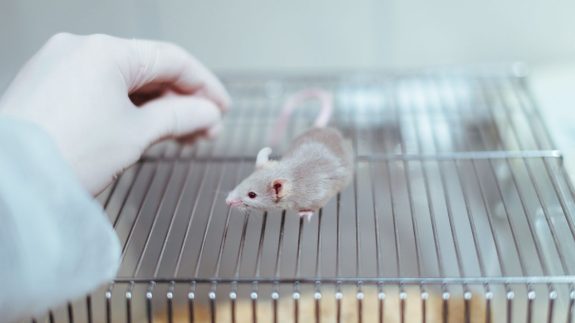In Canada, there is still no national regulation or oversight of animals used in laboratories. Instead, an industry-dominated body called the Canadian Council on Animal Care (“CCAC”) sets some minimal, non-legal standards for animal ethics and care in science in Canada. The Council recently released a draft of the new “CCAC Principles for the Ethical Use of Animals in Science”, and it’s open to public review. This ethics principles document is intended to guide all stakeholders involved in animal experimentation in Canada.
Animal Justice will continue to push for laws and government oversight of labs, but in the meantime, CCAC policies can have major implications for how animals in labs are treated. There’s an ongoing public consultation about the policy, so now is your chance to have your voice heard and to support stronger standards for animals used in experiments by providing your input to CCAC. The deadline for comments has been extended and is now September 23, 2022.
To submit your feedback, click on the following link and select “Review the Draft”. Once you have done this, select the option to provide “general comments on the document” (or, alternatively, select a specific section that you may have comments on).
Animal Justice recommends writing to CCAC on one or more of the following topics:
- In support of the elimination / phasing out of animal testing. Much of CCAC’s principles document should be applauded in that it emphasizes the use of non-animal methods over animal use in many circumstances. In particular, CCAC’s proposed “principles of application” provide that “animals must not be used if there is another, valid non-animal means of achieving the same research, educational, or regulatory goal”. This is a significant step towards phasing out outdated and unreliable animal testing.
That said, the principles document still supports animal testing where it is “necessary” or “cannot be avoided”. Unfortunately, the document does not clarify what is a necessary or unavoidable use. This leaves the door open to continued overuse of animal testing. In the spirit of moving toward a complete phase out of animal testing, Animal Justice recommends asking CCAC to strengthen the language in the principles document to restrict, phase-out, or ban animal testing altogether by an achievable date.
- In support of CCAC’s harm-reduction and humane treatment proposals as necessary minimum requirements when dealing with animals in research, testing, teaching and training, etc. We recommend commenting in support of: (a) CCAC’s acknowledgment that animal welfare includes both the physical and psychological state of individual animals; (b) the proposed principle that “any potential pain, distress or suffering must be minimized, and positive welfare states should be promoted”; (c) the proposed principle that “captive environments should provide animals with the opportunity to experience a life worth living”; and (d) the acknowledgment that particular activities should not be permitted for any reason, including those that are likely to cause “extreme harm” to be experienced by an animal.
- In support of CCAC’s proposal that, wherever possible, animals bred for use in scientific activities who are “no longer needed” should be retired, rehomed, or released into an ecologically suitable environment, rather than being killed. Animals used for science have historically been killed when they are no longer useful to the facilities that breed them. CCAC’s proposal in support of rehoming animals should be strongly supported. Animals’ lives should not be arbitrarily ended because they are no longer useful or convenient for research purposes.
Don’t miss your chance to speak out on behalf of animals used for science in Canada. CCAC’s public review closes on September 23, 2022.

